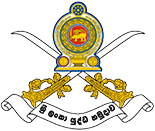 FOREIGN MINISTER Rohitha Bogollagama in an interview with Al-Jazeera TV on June 4, 2009 said that our future spokesmen in terms of the reconciliation process would be Tamil civilians who were held captive by the LTTE and now cared for by the Government in welfare villages. Excerpts of the interview are given below.
FOREIGN MINISTER Rohitha Bogollagama in an interview with Al-Jazeera TV on June 4, 2009 said that our future spokesmen in terms of the reconciliation process would be Tamil civilians who were held captive by the LTTE and now cared for by the Government in welfare villages. Excerpts of the interview are given below.
Presenter: First of all on the Navy seizing a ship laden with medicine, food and other supplies they claim its carrying provisions for the defeated rebels, the mission organisers say it is for Tamil civilians. Do you know anything about it?
Minister: Obviously any ship coming into territorial waters of a country has to be cleared in terms of its requirement for clearance. In an event any ship trying to enter our waters, we have the right of arrest and we must inspect and that is a procedure.
In this regard whatever action we are taking is a legitimate purpose towards establishing the intentions of the ones who are trying to bring this ship in.
It can be threatening to our national security or at the same time it can be a humanitarian exercise. But let us examine that and let us respond accordingly.
Presenter: Ok we will talk about national security in just a moment. First of all let us put that first question from one of our voice spots outside parliament - the young lad said “I just hope”. Can you promise that Tamils will be safe?
Minister: What about the Tamils who are already there in the country? Aren’t they safe? 54% of the Tamil community live outside the North and East provinces of Sri Lanka and they are amongst other communities and how safe are they? They have lived all this time, they have prospered and so much of investments have taken place even in the heart of Colombo running into billions of rupees and all that have been made by the Tamil community.
Haven’t they been safe all this time? What about their confidence in the system? What about those who are coming into the country? One’s who have fled the hold of the LTTE a few weeks ago are now part of community very much and they are being cared for by the Govt of Sri Lanka.
What about the parents of Prabhakaran, they tyrant Prabhakaran, they are being cared for by the Govt of Sri Lanka.
Why is this propaganda spin being given that Tamils are not safe in Sri Lanka? They were not safe when the LTTE was holding them throughout in the three provinces finally that fell into the hands of the Govt - in Mannar, Kilinochchi and Mullaitivu, that is the record that the LTTE brought about and we must put an end to this type of spin being given by interested groups still batting for the LTTE.
This young lad you just mentioned, they are being misguided.
It is a sin to misguide the youth and the very young ones. That was part of the LTTE strategy also. How many young people lost their youth because of the LTTE, becoming child soldiers?
Presenter: You talk about human cost. One figure I saw, the human cost - 6000 Sri Lankan soldiers killed in the last 3 yrs of the war; many more Tiger rebels lost their lives. How do you begin a reconciliation process which is the subject of another one of questions? How do you begin that after what is it 21 yrs of the war and after so many have died?
Minister: It is more than 21yrs - 27 yrs where the LTTE was trying to become a terrorist outfit in Sri Lanka and played that into the highest degree in becoming the world’s most brutal terrorist organisation.
That is now the history or is a matter of yesterday where Sri Lanka is concerned.
We have completely eliminated the LTTE as a terrorist organisation within Sri Lanka. But there can be certain concerns we still have in the international community that is why we are trying to have a comprehensive engagement with the outside world so that we could see that the LTTE will not be able to manifest in various other forms in the world.
We will be addressing that as a matter of priority. Now about the reconciliation - right now we have got 300,000 our Sri Lankans coming from the Tamil community who were held hitherto by the LTTE in the no-fire zone as a human shield who escaped the LTTE hold and came into the hands of the Govt and we are now taking care of them. They are the ones that will become our spokesman in terms of the reconciliation process for the future.
Presenter: You are looking after those who were held as human shield. I want to move on to this call for war crime investigators, the allegations of war crimes in Sri Lanka. The UN shrugged off calls for an inquiry. Would you welcome an inquiry to ‘clear the air’ if nothing else?
Minister: Let us understand the definition of war crime, how the definition is being given and within the framework of that definition where do you get Sri Lanka coming in? A democracy, exercising the legitimate right against terrorism and dealing with terrorism is the right that everyone has to deal with. And if we fail to deal with terrorism during our period in office, we will be held accountable by our people to have failed in permitting terrorism to be there and we have done so.
Today I am happy to announce that we have eliminated terrorism because we dealt with it. That won’t come within the definition of war crimes that people are trying to once again try to hype this up unnecessarily.
Presenter: Ok. You are resisting calls for investigators to go in, I want to move on to the displaced - the huge number of people who have left their homes, who have fled the fighting at the beginning, many hundreds of thousands. How or what action are you taking now to try and return those displaced to their homes and are you allowing complete humanitarian access to the camps?
Minister: This is already allowed. There are over 52 agencies working within the camps, within the villages which is termed as the welfare villages. The UN agencies are already there, we have got around 16 INGOs, another 24 NGOs who are backed by other international organisations the ICRC included. We are looking forward to seeing that they return back to their places of original habitat.
That is what is most important to us not to keep them in the welfare villages but to see that they return to their own villages where we will develop the infrastructure. We will provide water, electricity and housing.
One may ask how we are going to do this. But we have done this previously on two occasions - once when tsunami struck us in the North and the East. We have cleared those areas and we have restored normalcy to all parts of the Eastern and Southern parts of Sri Lanka.
We have done that once again in 2007 to 2008 in the eastern part of Sri Lanka when we cleared the area from the LTTE hold. (Courtesy: Daily News)

